Key Players In The Iraq War: What Has Become Of Them, 10 Years Later?
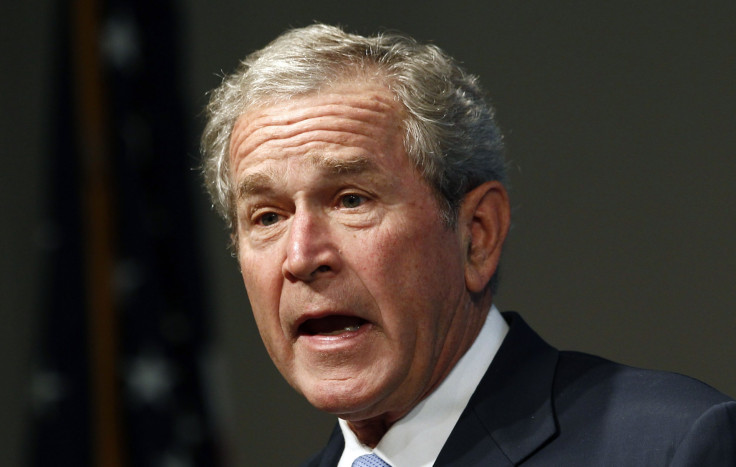
President George W. Bush began making the case for an invasion of Iraq in 2002.
"Iraq continues to flaunt its hostility toward America and to support terror," he said, adding that “states like these, and their terrorist allies, constitute an axis of evil, arming to threaten the peace of the world. By seeking weapons of mass destruction, these regimes pose a grave and growing danger.”
Bush launched the war on March 19, 2003, noting in a televised address that “helping Iraqis achieve a united, stable and free country will require our sustained commitment.”
Following his 2004 re-election, Bush presided over the worst years of the Iraqi insurgency: 2005 and 2006. In response, he approved a surge that saw an additional 20,000 troops deploy to Iraq in 2007 and 2008.
Bush’s time in office was winding down in December of 2008 when he spoke frankly about the war during an interview with ABC News.
“The biggest regret of all the presidency has to have been the intelligence failure in Iraq,” he said. “I wish the intelligence had been different, I guess.”
Bush wrote a memoir in 2010 and makes public appearances now and then, but has otherwise been largely absent from view since President Barack Obama took office in January 2009. Bush has a home in Dallas, but seems to have been spending a fair amount of time in Boca Grande, Fla., where he reportedly takes painting lessons from local artist Bonnie Flood.
"He started off painting dogs. I think he said he painted 50 dogs," Flood said earlier this month, according to an Atlanta affiliate of Fox News. “He has such a passion for painting, it's amazing,” she added. “He's going to go down in the history books as a great artist.”
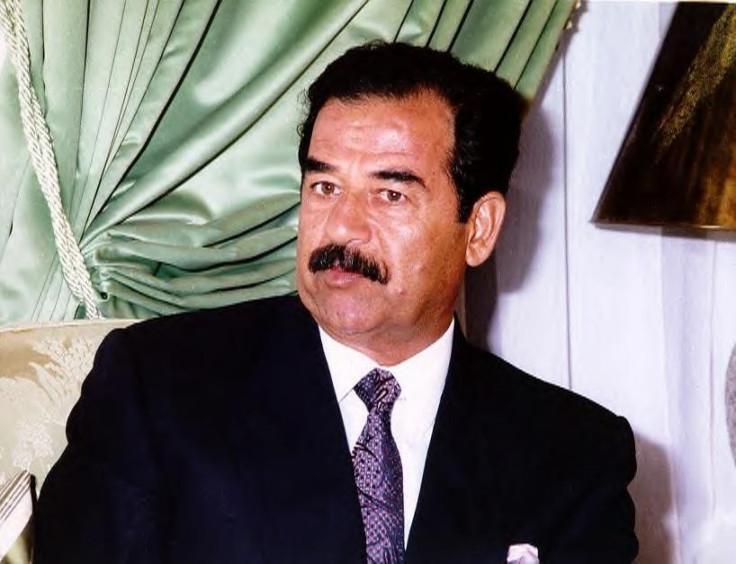
Saddam Hussein was president of Iraq from 1979 to 2003. During his time in office, he violently suppressed opposition groups. Shi'a Muslims -- who make up the majority of the Iraqi population -- and ethnic Kurds often experienced the brunt of that oppression. Hussein’s Arab Socialist Ba'ath Party had its power base among Sunni Arab communities.
Although Iraq got Western backing in its 1980-88 war with Iran, the tense relationship between the Ba'ath regime and the West was irreparably broken in 1990, when Saddam invaded Kuwait and prompted a U.S.-led military response: the Gulf War of 1990-1991. It also prompted program of heavy sanctions against Iraq, many of which lasted until 2003 and devastated the Iraqi economy.
While the U.S. was accusing Saddam of hiding evidence of WMDs, the dictator sat down for a Feb. 24, 2003, interview with Dan Rather for CBS News. “There are no missiles that are contrary to the prescription of the United Nations in Iraq,” he said.
“We hope that the attack will not take place,” he added. “But we are bracing ourselves to meet such an attack, to face it.”
After U.S. and allied troops invaded Iraq a month later, Saddam went into hiding in his home city of Tikrit. He was captured by American troops on Dec. 13, 2003, and held in a Baghdad prison cell at a U.S. military base. In June of 2004, he was handed over to Iraqi authorities. Courts operating under the interim Iraqi government tried him for crimes against humanity, committed as far back as 1982.
Saddam was found guilty in November of 2006, and hanged in December.
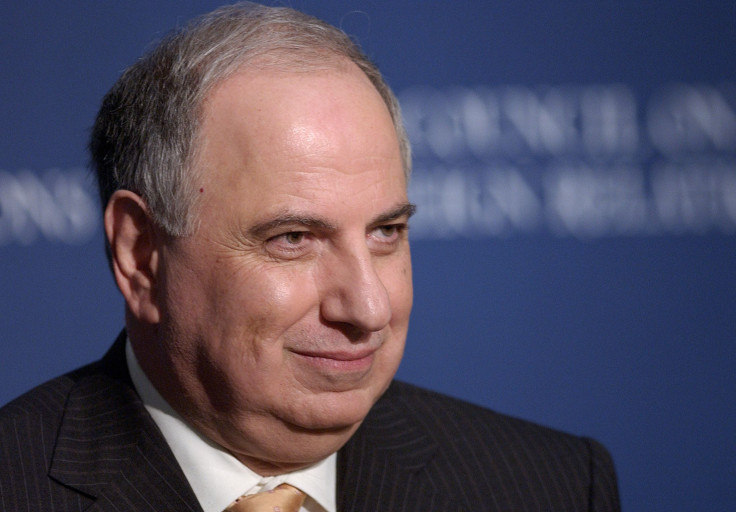
Ahmad Chalabi was an Iraqi opposition figure before the 2003 invasion; he played a major role in convincing U.S. officials to depose the Saddam regime.
Born to a wealthy Shi'ite family in Iraq, Chalabi spent most of his life outside his home country and charmed his way into elite circles in the United States, the United Kingdom and Jordan.
In Washington, he endeared himself to leading politicians. A vehement opponent of the Iraqi regime, Chalabi was a leading contributor to misleading intelligence about the existence of WMDs in Iraq -- but his cozy relationship with the Bush White House fell apart as those claims unraveled.
Chalabi reportedly angered U.S. officials by giving a 2004 interview with The Telegraph, during which he boasted about his role in influencing the invasion.
“We are heroes in error,” he said. “As far as we're concerned we've been entirely successful. That tyrant Saddam is gone and the Americans are in Baghdad. What was said before is not important.”
Chalabi has since gone back to Baghdad, where he served as deputy prime minister from 2005 to 2006. But his political bloc, the Iraqi National Congress, was never popular among the Iraqi people, and Chalabi failed to win election to public office.
Reports from the New York Times indicate that Chalabi may now be fanning sectarian flames once more by working with Shi'a activists in Bahrain to link them up with Iran.
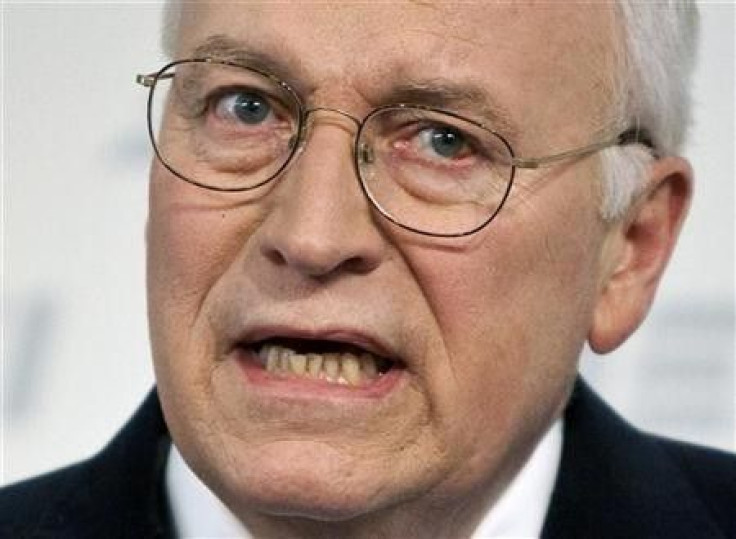
Dick Cheney served as vice president under Bush, but his many believe he was the one pulling the strings in the White House.
Cheney was heavily involved with the CIA and helped to convince other members of the Bush administration that Saddam possessed weapons of mass destruction, or WMDs, and was building relationships with terrorists.
Despite the fact that both claims were proven false, Cheney continued to rally support for the invasion and subsequent "nation-building" activities.
“We will succeed in Iraq, just like we did in Afghanistan.,” Cheney said in a 2005 interview with CNN. “We will stand up a new government under an Iraqi-drafted constitution. We will defeat that insurgency, and, in fact, it will be an enormous success story.”
By the time Cheney left office, his approval rating stood at an abysmal 13 percent, according to a CBS News poll.
Since leaving the White House, Cheney has not gone away quietly like Bush and has continued to defend the Iraq invasion. “I think the Iraqis will, in fact, be somebody we can work with on a regular basis, that they will have a rudimentary democracy, if you will. And I think it will be a success,” he said in a 2011 CNN interview.
“I think we made exactly the right decision,” he added.
Cheney is a staunch critic of the Obama administration and held a fundraiser for Mitt Romney in 2012.
This week, a new documentary -- “The World According to Cheney” -- aired on Showtime, focusing on how he was able to wield so much power in the Bush White House and cementing his image as a shadowy power player.
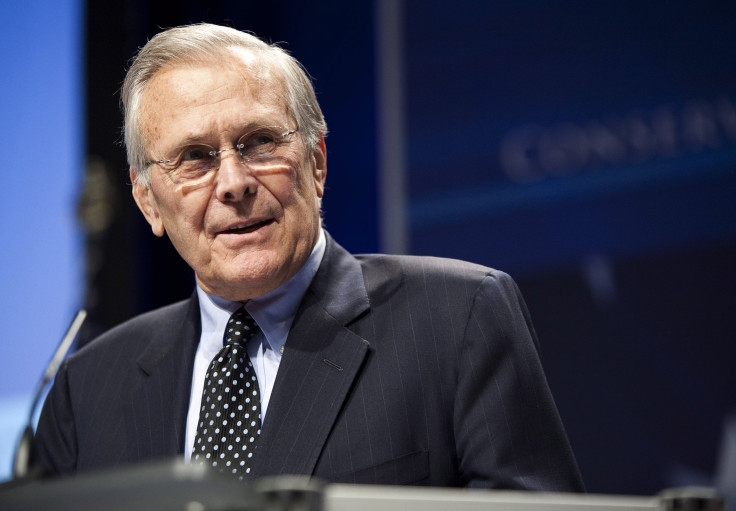
Donald Rumsfeld served as the U.S. secretary of defense between 2001 and 2006. (He also served in the same post under President Gerald Ford from 1975 to 1977.) Within the Bush administration, his was one of the strongest voices in support of the 2003 invasion of Iraq.
Rumsfeld has been criticized for efforts to manage media reports and control American perceptions of the war on terror. “Talk about Somalia, the Philippines, etc. Make the American people realize they are surrounded in the world by violent extremists,” he wrote in a memo published by the Washington Post in 2007.
Several retired generals stepped up to call for Rumsfeld’s resignation in 2006, citing what they called managerial failures in handling the war on Iraq. Rumsfeld did indeed send his letter of resignation to Bush on Nov. 6 of that year, the day before U.S. midterm elections that saw the Democratic Party score a sweeping victory. The formal announcement came on Nov. 8.
Since then, Rumsfeld has retired from the public spotlight, though he did establish the Rumsfeld Foundation in 2007; the organization supports military charities and provides fellowships to students and business leaders. He also released a memoir in 2011.
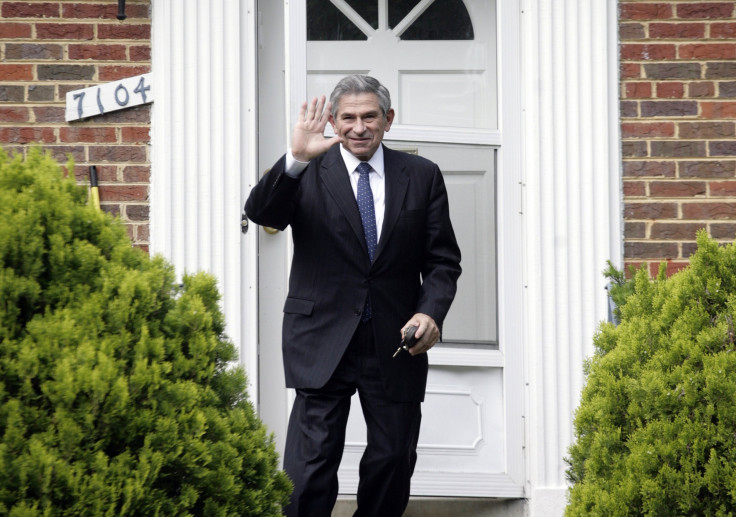
Paul Wolfowitz was the deputy secretary of defense under Rumsfeld from 2001 to 2005. Some see him as the brains behind the argument to intervene in Iraq in order to disrupt any (purported) relationship between Saddam and al-Qaeda, and to prevent Iraq from building an arsenal of WMDs.
After he stepped down from the Bush administration, Wolfowitz became president of the World Bank. But he resigned two years later, due partly to controversies regarding an affair with World Bank employee Shaha Ali Riza, and partly to Wolfowitz’ apparent aversion to the institution’s policies regarding family planning. Today, he is a scholar with the American Enterprise Institute in Washington.
In a CNN interview this week, Wolfowitz reflected why the war in Iraq didn’t go as planned.
“The reason it was so difficult and lasted so long is it took us so long to understand that we were dealing with an insurgency, that to deal with an insurgency, you need a counterinsurgency strategy. Instead, we were out trying to kill terrorists,” he said.
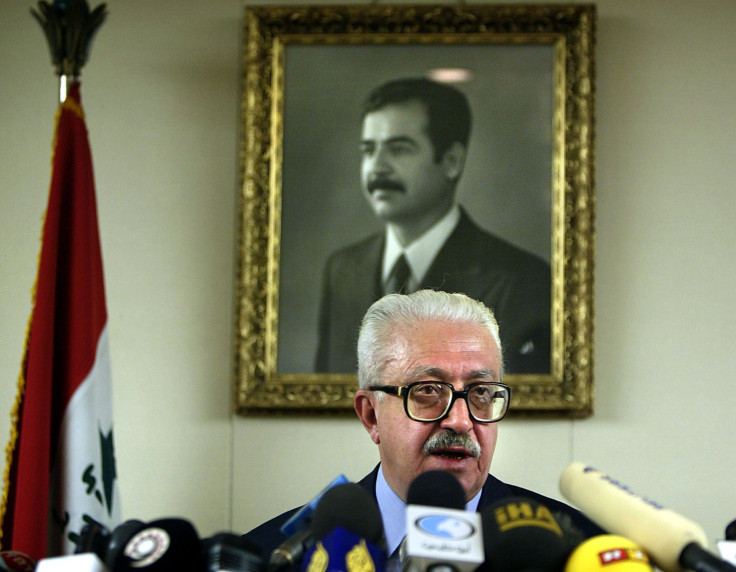
Tariq Aziz was Iraq’s deputy prime minster under Saddam. Because the boss preferred to stay in Baghdad, Aziz was often the face of the country in meetings with foreign diplomats abroad.
In a 2002 interview with the New York Times, he criticized Washington for threatening the Iraqi regime.
“North Korea has admitted to having a secret nuclear program,” he said. “The United States is not asking that North Korea be inspected in the way they are asking for Iraq to be inspected. Why? Because there are two things absent in North Korea: oil and Israel. The reason for this warmongering policy toward Iraq is oil and Israel.'”
Aziz, the highest-ranking Christian in Iraq, was a nationalistic figure who was a friend of Saddam and fully supported Ba'athist initiatives, from economic improvements to human rights abuses.
In April of 2003, a month after U.S. and allied troops invaded, Aziz surrendered. He is now being detained in Baghdad. He was tried and sentenced to death by an Iraqi tribunal, but his execution may never take place -- partly due to concerns about an unfair trial, and partly due to his advanced age; he is 76.
Canon White, Iraq’s only British expatriate, reportedly visited Aziz in jail last week.
“He is now a little old man in prison on death row,” White said, according to The Telegraph. “He wasn't repentant… there was no repentance for what he did under Saddam's government.”
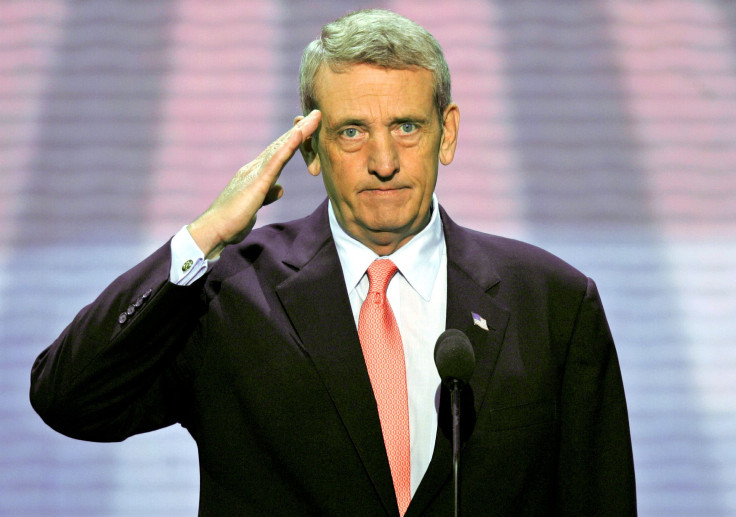
Tommy Franks was the commanding general of United Sates Central Command, or Centcom, from June of 2000 to May of 2003. That put him in charge of U.S. troops entering both Afghanistan and Iraq.
A Texan college dropout who went on to earn three Purple Hearts in Vietnam, Franks was known as a soldiers’ general -- he related well to the troops under his command, but didn’t always fit in with high-ranking officials in the White House.
As the case against Saddam was built up in Washington, Franks oversaw the buildup of U.S. troops around Iraq.
“We have a firm conviction that Saddam Hussein rapes, murders and abuses his own people, that he threatens the Western world and a great many nations in the international community,” he said in a rare media statement to the Associated Press in 2003.
As a commander, Franks was criticized for failing to allocate enough troops to the Battle of Tora Bora in eastern Afghanistan in late 2001. Some say this blunder allowed Osama bin Laden to escape his hiding place there. Detractors also take issue with Franks’s handling of the Iraq War after the fall of Baghdad, blaming the general for failing to implement a comprehensive strategy for reconstruction.
Franks retired in May of 2003. He now lives in Oklahoma and heads a firm called Franks & Associates LLC, which raises funds for community projects, including a museum in Hobart, Okla. dedicated to his legacy.
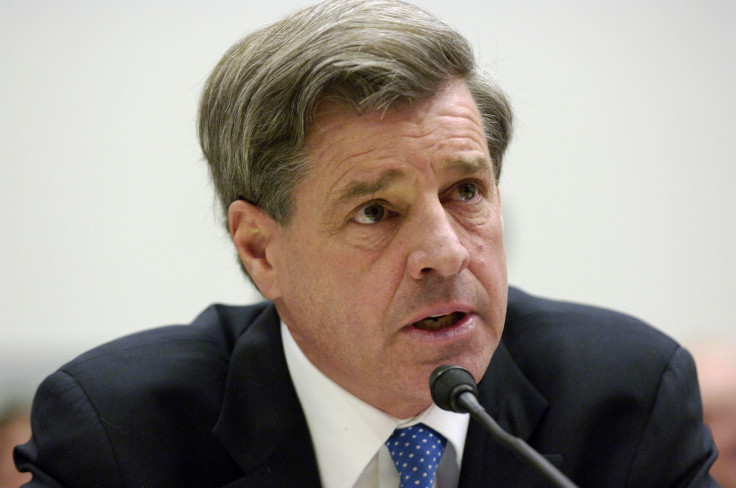
Paul Bremer was a U.S. presidential envoy to Iraq, arriving in Baghdad in 2003. When an interim administrative body called the Coalition Provisional Authority was established to briefly run the country, Bremer was its head -- effectively making him Iraq’s premier executive authority.
He held that position for one year, during which time he attempted to lay the groundwork for a new constitution and prepared for Iraqi officials to take over the country. The handover officially took place on June 28, 2004.
While in office, Bremer implemented measures to disband the Iraqi army that had served under Saddam and to ban Ba'ath party members from office. Critics say these decisions only exacerbated sectarian divisions in the country. Bremer has also come under fire for presiding over a period during which billions of dollars in reconstruction funds seem to have disappeared into thin air.
Bremer now lives in Maryland. Since returning from Iraq, he has admitted that the U.S. lacked a workable counterinsurgency policy. But he maintains that Iraqis are far better off now than they were before.
“The average income per head is six times what it was under Saddam,” he said, according to The Independent. "There is potable water, telephones, access to white goods, satellite and cable TV. The violence, even though it is high by Western standards, is lower than it was. And I still think Iraqis are far better off.”
Last month, Bremer became a news item once again. While giving a speech in London, he was addressed by an Iraqi man in the audience who said he had two messages to deliver -- one from the people of Iraq, and one from Saddam.
He then threw two shoes at Bremer, who was unharmed. “You destroyed our country,” said the demonstrator as he was being removed from the room.
“You should improve your aim if you want to do something like that,” responded Bremer, with a laugh.
© Copyright IBTimes 2024. All rights reserved.












